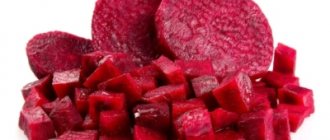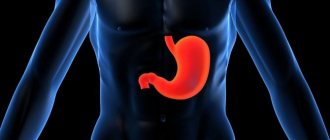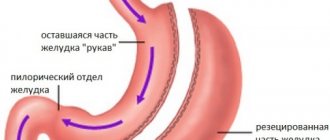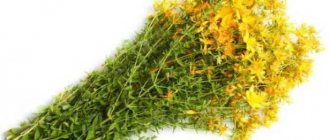Do you often have stomach pain? They can be caused by constant emotional stress, but usually indicate the presence of serious illnesses. Heartburn and bad breath also indicate that your stomach urgently needs help. But how to get rid of unpleasant symptoms and defeat stomach diseases?
First of all, you should find out what kind of disease is haunting you and find out its causes. And only then begin treatment. As a complementary therapy, take herbal remedies for stomach pain. But what plants can be used for this or that disease? This is what we'll talk about!
Why follow a diet with low acidity?
The acidity of gastric juice is one of the indicators of general health. We don’t think about the significance of this indicator as long as everything is normal. As soon as this indicator exceeds the norm or is below the required level, digestive problems soon make themselves felt. It is obvious that the content of hydrochloric acid in gastric juice in excess of the norm leads to corrosion of the mucous membranes. Hence the inflammation and ulceration. But what goes wrong when there is not enough hydrochloric acid in the gastric juice? You should be wary of attacks by pathogenic microflora and insufficient secretory activity of the stomach, which means dyspeptic disorders and incomplete breakdown of food.
The course of digestive processes is determined by the concentration of gastric juice, and its composition is formed in two stages. The gastric mucosa contains two groups of glands. The first produces hydrochloric acid directly, and the second produces bicarbonates that neutralize it. Due to their mixing, the acid balance of gastric juice is formed. With reduced acidity of gastric juice, the following is observed:
- incomplete digestion of nutrients, especially proteins, so that the food consumed does not reach its full nutritional potential;
- weakening of local immunity and penetration of pathogenic microflora into the digestive tract - hence stomach upset;
- dysfunction of enzymes, which means that food is not digested enough and will begin to ferment - hence flatulence, belching, bad breath and discomfort/pain in the abdomen;
- intoxication of the body, since food in the digestive tract is not completely digested, the body’s immune defense is weakened and it is attacked by bacteria - hence the production and accumulation of waste and toxins, up to severe food poisoning.
Gastritis with low acidity most often develops in mature and elderly people, but it also occurs among young people. Globally, the consequence of the problem can be formulated as insufficient digestion of food, insufficient absorption of nutrients and vitamins by the body, and the inability to resist aggressive microflora. Very often, hypoacid gastritis is combined with hypovitaminosis (groups B, C). Patients complain of general weakness and malaise, unsatisfactory condition of skin, hair, nails, abdominal pain and dyspeptic disorders.
The processing of food entering it by the digestive tract, provided there is insufficient hydrochloric acid content, is accompanied by:
- belching or the urge to burp,
- stool disorders - frequent bowel movements (diarrhea) or delayed bowel movements (that is, constipation);
- nausea and heartburn.
It is impossible to constantly endure such a condition, and even if someone considers this possible for himself, he risks facing exacerbations of gastritis, severe forms of hypovitaminosis and all sorts of complications from duodenitis to malignant neoplasms.
The solution to the problem is both simple and complex at the same time. On the one hand, there is almost no point in pharmaceutical drugs; drug therapy can be an addition, and not the basis for normalizing low acidity of gastric juice. On the other hand, following a diet is not as easy as it seems - it turns out to be almost lifelong, deviation in some positions is accompanied by a sharp deterioration in well-being.
Symptoms of gastritis and ulcers
Let's look at the symptoms of these diseases and understand the causes of their occurrence. Every person has felt the symptoms of gastritis at least once.
- belching after eating (with an unpleasant odor or acidity)
- feeling of heaviness and bloating after eating
- sometimes pain in the upper right region of the stomach
- nausea after eating
- change in taste and lack of appetite
- bowel dysfunction (spastic constipation and intestinal pain).
These symptoms develop in the early stages of gastritis and if you do not pay attention to them, the clinical picture may worsen and chronic gastritis may develop.
Chronic gastritis is characterized by:
- frequent stomach pain during and after meals
- intense belching or hiccups after eating
- stomach rumbling
- bowel dysfunction
- digestion of food
Exacerbation of chronic gastritis leads to a more serious stomach disease - peptic ulcer . This is a violation of the integrity of the walls of the stomach, the formation of small wounds and ulcers with possible bleeding.
Peptic ulcer disease is characterized by:
- severe stomach pain (especially at night or when skipping meals)
- vomiting during or after eating
- belching with a sour smell
- appearance of blood in vomit
At this stage of the disease, it is necessary to consult a doctor and undergo an examination. After a diagnosis has been made by a doctor and appropriate drug treatment has been received. Herbal therapy is often prescribed, both for medicinal purposes and for maintenance therapy.
Herbs have various capabilities for the treatment of gastritis and peptic ulcers. They relieve spasms and pain, have an enveloping effect, relieve inflammation and heal, improve digestion of food and have an antimicrobial effect.
Basic principles of a diet for low acidity
Nutrition with low acidity has both a functional and corrective value. You should go into an appropriate diet not on the basis of your own conclusions and conclusions, but only after a specialized consultation with a physician and based on the results of the diagnostics.
In the first stages, the digestive system will be able to cope exclusively with easily digestible food, and subsequently the nutrition agreed upon with the gastroenterologist will have to fit into the general lifestyle. This way it will be possible to soften the negative processes in the digestive tract, and over time, minimize them.
The goal of a low acidity diet will always be to stimulate the production of gastric juice. It is important to focus on products that do not irritate the walls of the stomach, but at the same time stimulate the secretion of the digestive organs.
Among the basic principles:
- multiple meals - 5-6 times a day, but in smaller portions;
- chewing food thoroughly - it is very important to eat slowly and chew each piece well, because the digestion of food begins in the oral cavity under the influence of saliva;
- in order to facilitate the digestion of food in the digestive tract, it is appropriate to resort to pureeing as often as possible among all types of culinary processing, and it is better to mash vegetables and fruits (containing fiber that is not always easily digestible) before pureeing;
- as with gastritis with high acidity, it would be correct to refuse too cold or too hot food;
- refusal of products that cause fermentation processes - whole milk, cream, sour cream, refractory cheeses, freshly baked confectionery, chocolate, baked goods (yeast-based), radishes, garlic;
- regarding obviously “unhealthy” foods and bad habits:
- you will have to give up smoking completely,
- reduce the consumption of alcohol and carbonated drinks/water to a minimum,
- but moderate coffee consumption is acceptable,
- although preference is given to steaming and baking in its own juice, after a month or two after an exacerbation, you can resort to frying food, but not until crispy;
- smoked, salted, hot and overly spicy - this is a risk area,
- but pickled vegetables, rich broths and even herring contribute to increased acid formation (and this is our goal).
Herbs for treating stomach
Chronic diseases of the stomach that occur in a mild form (gastritis, erosion, etc.) are dangerous because they can lead to serious consequences over time. A neglected ulcer can even provoke a perforation of the stomach wall! In this case, even with the help of surgery, doctors are not always able to save the patient’s life.
Buy wormwood (herb) on our website
Now do you understand what the consequences will be if you let the disease take its course? Therefore, we advise you to first undergo a thorough examination and only then begin treatment. Herbs that treat the stomach will help reduce unpleasant symptoms. Let's discuss which plants will help you!
Medicinal plants for gastritis
Gastritis is a bacterial disease. Therefore, to treat the disease you will need herbs with a strong antimicrobial effect. Plants should also relieve inflammation and have a healing effect on the gastric mucosa.
Are you wondering which stomach treatment herbs are effective for gastritis? Here is the list:
- Wormwood is recommended for chronic gastritis. It stimulates the secretion of gastric enzymes and increases the speed of food digestion. The herb is used to prevent stomach ulcers.
- Sweet clover has an antibacterial effect, heals mucous membranes, has a mild analgesic effect, and prevents gas formation.
- Raspberry leaves regulate the production of gastric juice, improving digestion, and relieve inflammation and spasms in stomach diseases.
- St. John's wort contains natural antibiotics, which allows it to successfully fight Helicobacter pylori infection. The plant eliminates indigestion and nausea, improves appetite. It is often used to get rid of bad breath.
Important!
Gastritis can develop with different acidity of the stomach. Consult your doctor before using any herb!
Herbs for stomach ulcers
Do you suffer from lack of appetite, hunger pains and a feeling of discomfort after eating? You should visit a gastroenterologist as there is a high chance that you have a stomach ulcer.
Many people are interested in the question: is it possible to alleviate their condition with peptic ulcers using medicinal plants? Of course you can! Look in your first aid kit to see if you have anything from the following list:
- Yarrow is used in complex therapy of ulcers. The herb stops gastric bleeding, heals wounds on the mucous and muscular membranes, and alleviates pain.
- Mint is recommended for high acidity. With its regular use, the acidity of gastric juice decreases, as a result, the burning sensation in the stomach goes away. Thanks to its antispasmodic effect, mint normalizes the functioning of the muscular lining of the stomach.
- Bergenia stops gastric bleeding, relieves inflammation, and helps restore the mucous membrane. Infusions of bergenia root are also used to improve digestion and combat stomach and intestinal colic.
- Ivan tea contains compounds that envelop the gastric mucosa, creating a protective film. The plant has wound-healing properties, so it is often used in the treatment of ulcers.
- Sea buckthorn fruits are effective against trophic ulcers. They calm the stomach and stimulate the production of enzymes.
Attention!
If you have a peptic ulcer, do not use calamus root, oregano and juniper! These plants can aggravate the disease.
Plants for tumor prevention
Benign tumors in the stomach reduce the efficiency of digestion and cause pain, and cancerous tumors can kill a person in a matter of months. To reduce the risk of their development, you can resort to herbal medicine.
But which plants have antitumor properties? We recommend the following medicinal herbs:
- Celandine prevents the development of tumors, stimulates the proper functioning of the stomach, and relieves inflammation. It can be used by people with high, normal and low acidity.
- Blueberry shoots enhance the secretory function of the stomach and prevent indigestion. They contain many antioxidants, so when taken for a long time they have an antitumor effect.
- Plantain is effective for poisoning, gastritis and ulcers. This medicinal plant is used to prevent the development of gastric and intestinal tumors, and is also used to combat existing tumors. A course of plantain in combination with chemotherapy promotes the resorption of metastases.
Products for a diet with low acidity
Some foods in a diet with low acidity are completely opposite to those with high acidity. Others largely coincide with the menu for hyperacid gastritis. Let's get into the details:
- bread - it should be present in the diet, but stale or slightly dried; It is not at all necessary to refuse rye bread, unless there are manifestations of flatulence; You will still have to give up baked goods, as well as fried pies or fatty crumpets;
- cereals - buckwheat, oatmeal, rice and other cereals are recommended, with the exception of pearl barley;
- meat and fish - the presence of lean varieties of both meat and fish in the diet is welcome; these are lean parts of beef, chicken, turkey, as well as pollock or cod, but not salmon or halibut;
- vegetables - cabbage, zucchini, pumpkin, carrots, potatoes, ripe tomatoes, greens (except onions), cucumbers, beans are allowed; turnips, baked and with vegetable oil, are regarded as a folk remedy that significantly facilitates the functioning of the gastrointestinal tract; hard-to-digest vegetables (cabbage, legumes) should not be consumed during periods of exacerbation;
- fruits and berries are allowed, but in moderation, citrus fruits, as well as apricots, fleshy grapes, strawberries, raspberries, wild strawberries, black currants, gooseberries;
- Among dairy products, it is better to give preference to low-fat cottage cheese, milk, good hard cheese, kefir and natural yoghurts; fatty dairy products, including butter, may be present in the diet, but in very small quantities and rarely;
- As for drinks, juices or fruit drinks made from sea buckthorn, lingonberries, cranberries, and rose hips are recommended; occasionally kvass and coffee are allowed; It is better to avoid strong tea and alcohol-containing drinks;
- The use of broths - vegetable, meat, fish - is encouraged; outside periods of exacerbation of gastritis, a portion of meat/vegetables along with such broths, that is, full-fledged soups, is also allowed
What can you find in a pharmacy for ulcers and gastritis?
In pharmacies you can find many different mixtures and herbal teas aimed at treating stomach diseases, including gastritis and peptic ulcers. In such collections you can find quite a variety of plants: angelica root, palmatee, aloe leaf, knotweed, common rose, calendula, pumpkin fruits, sea buckthorn, valerian, dill, dill and many others. All the variety of plants is aimed at helping and healing the gastric mucosa. And after consultation with a doctor, you can use various preparations: “Gastritol”, “Fitogastrol”, “Gastrofit” and “Renorm”.
Join our Facebook group
Folk secrets for low acidity
Some absolutely everyday foods, if consumed regularly and in a certain quantity, partly turn into folk medicines. In order to increase the acidity of gastric juice, you can go into the following secrets:
- the power of honey:
- mix honey and butter in equal proportions; take 1 tbsp. 3-4 times a day half an hour before meals;
- ½ tsp. dissolve flower honey in ¼ cup of warm boiled water; take 3 times a day 20-30 minutes before meals;
Prevention of constipation with gastritis
It is much easier to prevent constipation than to deal with it later. For prevention, there are several recommendations that should always be followed.
- Food should be chewed thoroughly, as large pieces take a long time to digest and can cause heaviness in the stomach.
- Patients with gastritis need to get rid of the habit of quickly snacking on the go or eating dry food.
- Meals should be fractional and portions should be small. It is best to eat every three to four hours.
- Do not overload your digestive tract before bed.
- Breakfast should be complete. You should forget about strong coffee or tea with sandwiches, drunk on an empty stomach or for a run before work. It is imperative to find time to eat healthy and nutritious food.
- Do not forget about feasible physical activity. There is no point in tormenting yourself with training, but everyone can do a walk after work.
Constipation with gastritis is an unpleasant phenomenon, but it can be dealt with, and first of all, you should treat the underlying disease. All patients should know that once a period of remission occurs, problems with bowel movements usually disappear. That is why all efforts must be directed towards eliminating the cause of constipation, and not just fighting it.
Up to contents








